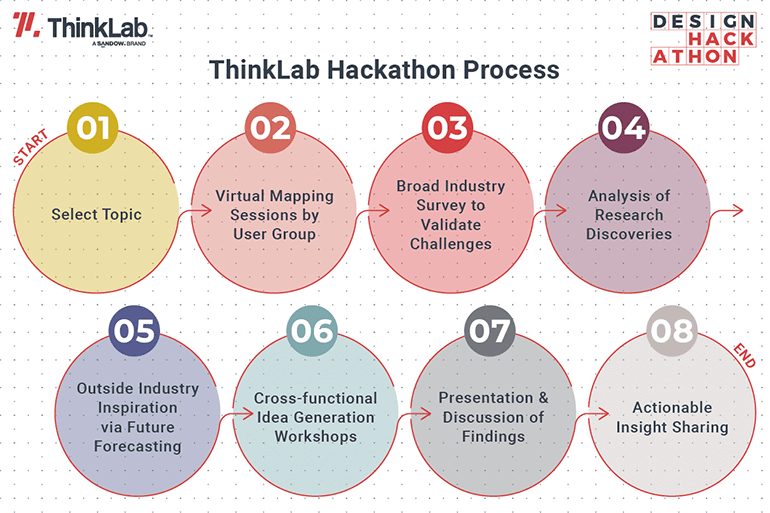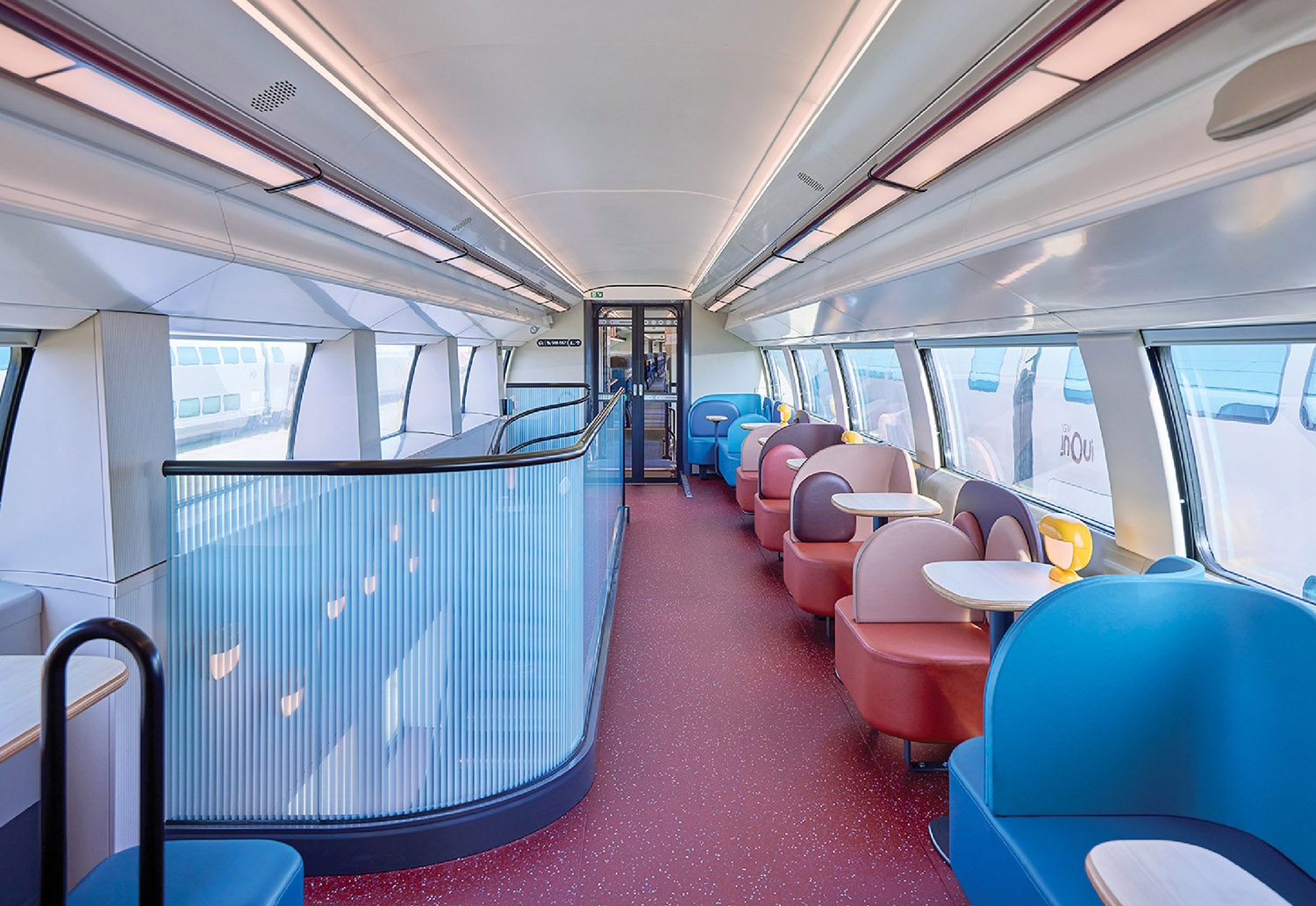Hackathons Aren’t Just for Tech Companies: Accelerating Positive Disruption in the Interiors Industry
In the past year we have seen paradigm shifts across all industries. Here’s the interesting thing: In many ways, the pandemic just accelerated changes that were already happening, especially in the interiors industry. But what if we wanted to accelerate our response to that change? This is where the concept of a hackathon comes in.
Hackathons aren’t just for tech companies.
At the core of the traditional design-thinking process is leveraging process mapping, intense brainstorming, and varied viewpoints to solve complex challenges. Need some examples?
Hack Horizon organized an 80-hour hackathon focused on improving the end-to-end customer experience in travel that was widely considered as successful. Through their excellent facilitation as an independent third party, the co-founders of Hack Horizon—Kristy Hart, Kosta Kolev, and Johannes Jaeger—could focus their attention on gathering together players from across the travel industry (as opposed to corporate accelerators which focus on the leadership running them). Thirty-two hackathon participants took flight from Hong Kong to London, literally developing their ideas while in the air.
“We have experienced other hackathons before, but what makes Hack Horizon so special is their travel industry focus which could bring us more specific insights,” said Richard Tams, executive vice president of British Airways for China, Hong Kong, and the Philippines.
Providence—a nonprofit, Catholic healthcare system operating multiple hospitals across seven states—leveraged a hackathon to disrupt the healthcare industry from the inside. Inspired by the pandemic, the goal of its Digital Innovation Group was to leverage tools to create better digital experiences and address the problem of inequality in healthcare access. Learn more about its results here, or explore their website here.
Need more ideas? Here are 50 startups that emerged from hackathon processes.

Hackathons can accelerate positive disruption from within the interiors industry.
With a complex ecosystem that underpins our work designing physical space, the interiors industry is a strong candidate to hack big, hairy industry challenges. So ThinkLab, SANDOW Design Group, and forward-thinking innovators are setting out to leverage design thinking to push positive disruption from within our own industry. Here are a few in-industry examples from the past leading up to the present day:
CBRE created a tool kit of ideas to evolve the furniture bid and purchase process.
You may have read about ThinkLab’s project (pre-SANDOW acquisition) centered around the CBRE Furniture Forum, as featured in the Huffington Post. This hackathon set out to bring together commercial real estate, leading furniture manufacturers, dealer distributors, and the A&D community to propose a new way forward for the traditional furniture-bidding process.

The SANDOW Design Group (SDG) Hackathon, led by ThinkLab, tackled a crucial topic for driving economic success: exploring business development in this increasingly digital era.
During the height of lockdowns, we (virtually) brought together leading commercial real estate professionals, A&D firms, manufacturers, and end users to explore new ideas from a cross-functional viewpoint.
As Steve Hart, principal at HLGstudio and hackathon participant, stated, “One ‘aha’ for me from participating in the SDG Hackathon is how the pandemic has not necessarily created new challenges for our industry, but has accelerated challenges that already existed. This makes our discussions and solutions much broader in their appeal as they are not simply a reaction to the current situation, but items that we all need to deal with no matter what.”
You can learn more about that process on season two of ThinkLab’s design industry podcast, Design Nerds Anonymous.
As a result of the SDG Hackathon, and as workplaces reopen and our B2B industry has to rethink long-held industry practices of business development in an increasingly digital world, ThinkLab has created a playbook of 100 ideas for B2B business development in the phygital (that’s physical + digital) era. (Want to be the first to know when you can get your hands on a copy? Drop your email here to be notified when it releases!)
Metropolis created the first-ever Carbon-Neutral Hackathon to develop a design tool kit for low-carbon interiors. Content from this event will be released in August 2021.
ThinkLab is delving deeper with a new design hackathon. This one will uncover opportunities to increase the efficiency or effectiveness of the product discovery, selection, and specification process in this new, increasingly digital era for the interiors industry.
We translate this data into actionable insights to help empower you to make informed decisions for your business. We’re thrilled that our forward-thinking sponsors will be driving the future of their respective product categories, including Mannington Commercial, Keilhauer, Designtex, DIRTT, Koroseal, and Clarus. Participating firms include AECOM, Perkins&Will, Perkins Eastman, HDR, HLW, Gensler, and more.
As with the Hack Horizon example above, our facilitators help gather anonymous insights from architecture and design firms large and small, because of ThinkLab’s expert facilitation from an industry-neutral point of view. So, whether you are deeply familiar with market research methods, or are looking to learn more about how data can benefit your business, we invite you to follow our journey throughout the design hackathon process as we explore insights to drive the interiors industry forward.
Amanda Schneider is President of ThinkLab, the research division of SANDOW. At ThinkLab, we combine SANDOW Media’s incredible reach to the architecture and design community through brands like Interior Design Media, Metropolis, Luxe, and Material Bank with proven market research techniques to uncover relevant trends and opportunities for the design industry. Join in to explore what’s next at thinklab.design/join-in.


